Kenopanishad

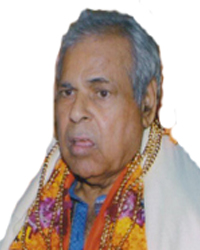
Author
Dr. Sunder Lal KathuriyaDate
22-Sep-2014Category
ArticleLanguage
EnglishTotal Views
785Total Comments
0Uploader
Upload Date
22-Sep-2014Download PDF
-0 MBTop Articles in this Category
Top Articles by this Author
The Divine message and Relevance of Kenopanishad in modern scenario
Upanishads form very important parts of vast ancient Vedic literature .They are also known as ‘Vedanta’, the last part of Vedas. Their philosophy reveals the truth of Brahman, the supreme authority and the path to ‘Moksha’ [liberation]. Upanishad means to sit devotedly nearby the preceptor for true knowledge of Brahman. The pupil sits nearby guru [teacher] for spiritual instructions, as well as to learn the art of living. Upanishads not only exist after thousands of years of their writing but are of utmost importance and touch each and every aspect of modern life. They provide valuable suggestion, give divine message and guide like a light house.
Kenopnishad is second [in order] most important amongst all. It’s name is derived from its first word ‘kena’, which means ‘by whom’. Kenopnishad is divided in four ‘khandas’ [sections]. The content of the Upanishad runs in question – answer style. The simple word ‘kena’ shadows the whole Upanishad. The question is who directs the mind, ‘pran’, speech, eyes and ears to work? It is the ‘Atman’ [soul / spirit] who directs or commands them. They perform their functions through the ‘Atman’. Atman is chetan [pure consciousness], gyanswaroop [enlightened] and immortal. He who knows this and firmly believes that neither I am ‘pran’ nor senses, nor body, but immortal ‘Atman’, identifies himself with ‘Atman’ and attains immortality, the eternal bliss and is not caught in the cycle of births and deaths for a very – very long period.
After the knowledge of Atman, one must attain the knowledge of Brahmanwho is formless, invisible, almighty, supreme, pure consciousness, incomprehensible, mysterious, all – pervading,the master of all senses as well as ‘pran’. Brahman edudes all definitions. He is distinct from the known as well as unknown. By no means can language or senses completely explain the true nature of Brahman. The eyes can’t see the Brahman, speech can’t describe Him completelyand the mind can’t imagine Him. The real aim of human life is to know Him by true spiritual knowledge i.e. ‘vidya’. Only by ‘vidya’, we can attain immortality. If we are not enlightened by true spiritual knowledge and don’t try to knowHim, wehave lived in vain. This is the greatest loss of our life. The greatest aim of our life is ‘moksha’ and if we don’t try for that, our wordly wisdom and all achievements are useless, as we have lost our precious human life in petty things.
One who is proud and is propagating that he completely knows Him, knows Him not. Those who know Himare very humble and never claim to know Him. Pride is the greatest enemy on the path of spirituality. To show the truth of this fact, there is an interesting allegory which shows the supremacy of ‘Brahman’ over all other gods and their ignorance of Him due to their proud.Allegory is - Oncedevas [gods] became proud of their victory over evil forces and also of their powers. To make them humble, Brahmanappeared before them as ‘Yaksha’, but they could not know who that great ‘Yaksha’ was. First of all Devas sent Agni [fire] to know who that Yaksha was? Agni went there and the Yaksh asked him whoare you and what is your power? Agni replied, “I am Agni and I have the power to burn all things on the earth”. Then the Yaksh gave a small piece of straw to Agni to burn, but Agni was unable to do so, though he tried his level best. In the same manner, Vayudev [god of air] could not blow that straw. Lastly Indra went there to know the reality of Yaksha, but could not see him. While returning Indra met shinning as gold Uma and asked her who the great Yaksha was? Uma replied,”Yaksha was the greatest Brahman. You and all other gods derive your shinning and power from Him. Your victory is by his sweet will. Here Uma symbolizes the enlightened spiritual wisdom, by which one can realize the true nature of God and perceive Him.
Thus the divine message of this allegory in modern scenario is that none should be proud of his powers, worldly achievements or victory. What-so-ever, one has achieved, is a boon from the Great God. Moreover all things are perishable. So one should be grateful to the all mighty for his powers and gains, must have firm faith in GOD, try to know his real nature, should worship Him whole heartedly in the state of ‘Nirvikalpa Samadhi’ and try to achieve spiritual knowledge by which one can achieve immortality.
Due to ‘Avidya’ i.e .ignorance generally we identify ourselves with the mortal body and its organs but not with Atman. We must know that without true knowledge of Atman and Brahman we can’t attain enlightenment and immortally. For acquisition of knowledge of Brahman austerity, self – control and self sacrifice are essential. Destruction of evil actions and ignorance also helps in it. Purification of mind, deeds and removal of disbelief in God are also required.
Life of modern man is surrounded by worldly comforts. The more one needs, the more one suffers. The modern science and technology have invented new mechanism of human comforts and have lessened the time and space, but increased aspirations, greed, desire and dis- satisfaction. Instead of comfort, man is suffering from mental agony. All human sufferings are due to ‘Avidya’ [ignorance] and can only be destroyed by the ‘Brahma-gyana’ i.e. true knowledge of Brahman. Spiritual knowledge can be attained by truthfulness, austerity, self control and study of Vedas.Oneness in speech, mind, and action can give one satisfaction, mental peace, happiness and tranquility. Only good natured people, who are not proud but humble canfollow the path of spirituality and canattain ultimately immortality, ’Moksha’ or liberation from cycle of births and deaths.




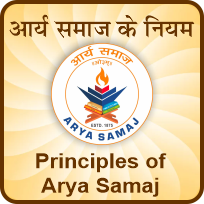
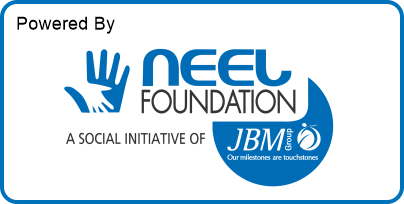






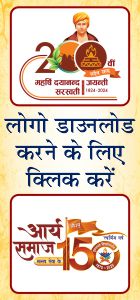

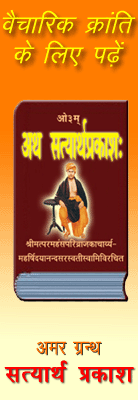

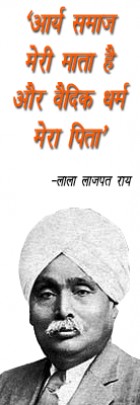
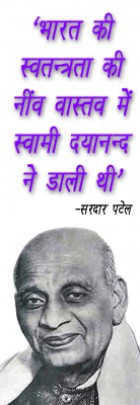
ALL COMMENTS (0)